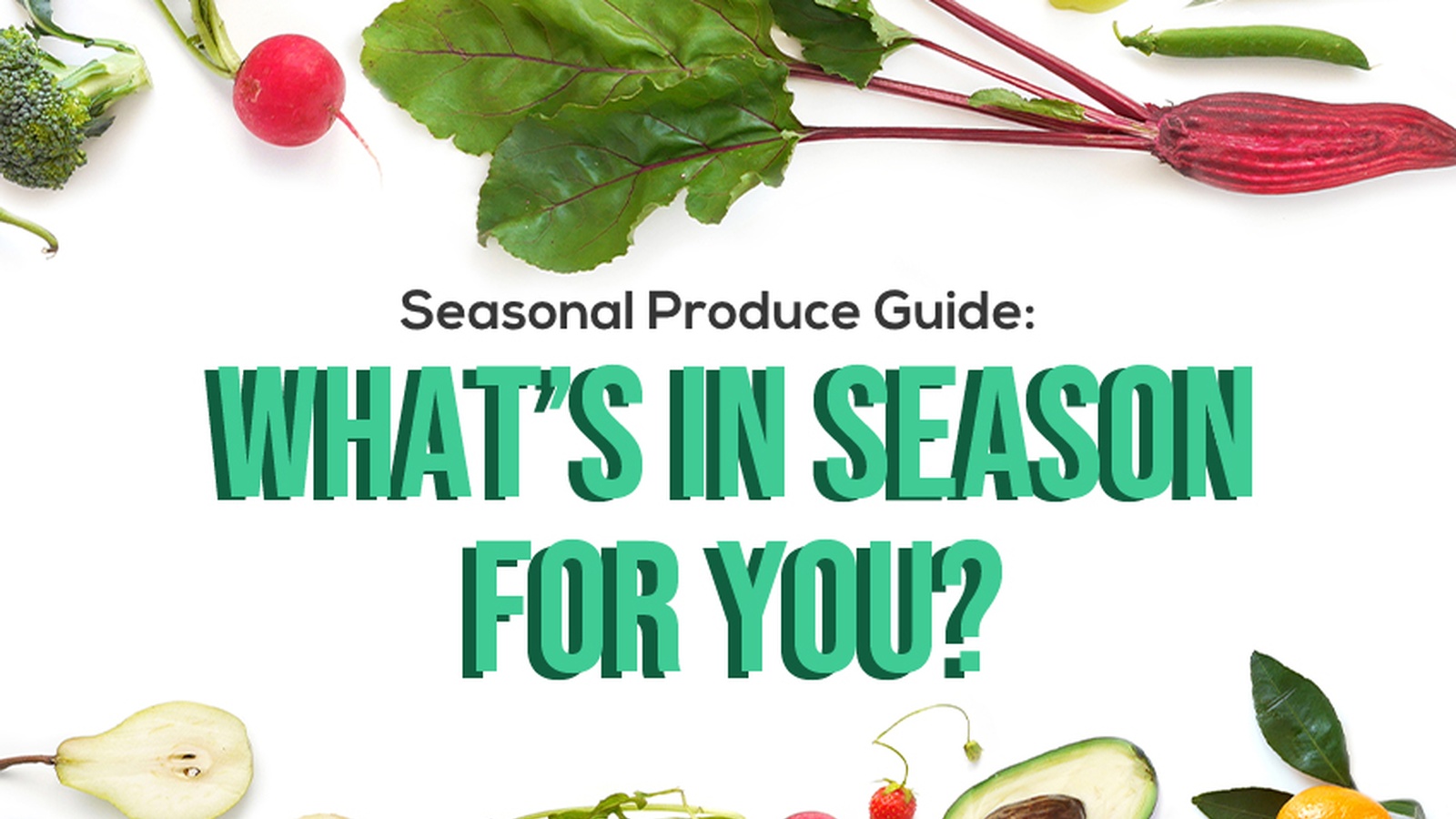Seasonal Produce Guide: What's In Season for You?
Do you pay attention to what’s in season? Though it can be tempting to just stick to buying whatever you see on the shelves in a grocery store, there are many benefits to only buying what is actually in season. Often it is tastier, cheaper, better for our environment, and is said to have higher nutritional content!
Eating out of season is certainly better than skipping your intake of fruits and vegetables, and we are lucky enough to have access to such a variety of produce. Here are some of our favorite reasons for why you should try to eat seasonally:
- Flavor: When produce is grown in the right season, it is allowed time to fully ripen naturally, creating optimal and real flavor.
- Nutrition: Seasonally grown produce means it is getting the right amount of sun and growing in it's best conditions, resulting in more nutrients.
- Environmental: Seasonal produce is less likely to need too much human assistance, which can result in less pesticide use, plus eating more locally means less food mileage.
- Economical: Eating seasonally produced food is likely to be cheaper. As there is an abundance of what's in season, there is likely to be cheaper prices in the supermarket and at the markets.
We've put together this handy infographic to help you navigate what's in season for you! The sheer diversity of our World means that some produce is in season in different parts of a country at different times, therefore, this is only a guide. We would recommend heading on an adventure to your local markets and getting to know the farmers in your area to find out what’s in season in your area.











